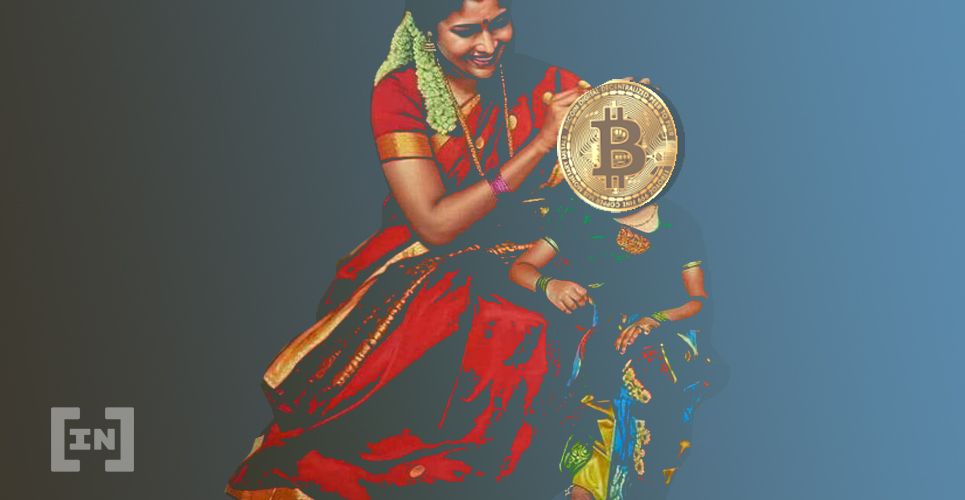
2020-8-13 21:21 |
India is exploring a blockchain-powered voting system for transparent, secure, and inclusive elections.
The Election Commission of India (EC) organized a webinar on technology aspects involving remote voting that explored various blockchain use-cases.
Election Commissioner Sushil Chandra brought up the issue of voter privacy and expressed his concerns over geographical issues in voting. He stressed that an alternative voting system must be “transparent, live, auditable, and develop a perception of being very clear in the minds of the voters”.
He clarified that the commission does not envision internet-based voting from home.
“Remote voting project aspires for enablement of voters residing in remote locations, away from their designated polling stations, to cast ballot in a secured fashion,”
Chandra said.
Another key official and an adviser to the government, Vijay Raghavan, was optimistic in bringing blockchain into the voting mechanism. He did not see any “major pitfalls” and urged the commission to try blockchain as a mock exercise in some locations.
“There may be pitfalls but it’s possible to address those pitfalls,”
an Indian major daily reported.
Speakers laid possible approaches, for example, VN Shukla, the IT director for the EC said that organizations must see remote voting as a “layered system” with an easy to use process, robust and scalable tech and a maintainable user interface. The adoption of blockchain technology should “gradually increase,” he stated.
The webinar had a series of sessions ranging from discussions on data privacy and regulatory concerns, authentication, and verifiability on blockchain voting, among others. Senior government officials from the country’s election commission, advocates, and global blockchain leaders were present.
The Indian States Embrace BlockchainThe Indian state of Telangana has expressed interest in experimenting with blockchain technology for remote voting. Jayesh Ranjan, IT Secretary for the Telangana state said that small-scale blockchain testing could be carried out for learning purposes.
According to the senior official, state governments can initially implement blockchain on smaller bodies such as societies, sports, and cultural associations for their internal elections. He added that state governments can use their authority, power, and influence to do so, an Indian news site reported.
“Once we have enough use cases, we can convince the government to try it out and gradually scale it up to the national level,”
Ranjan said at a webinar series titled “Blockchain applications & experiences from India and around the world”. He cited that the technology “is not difficult” and there is no demand or deficiency in remote voting or blockchain.
“There should be a need for this particular technology. One needs to demonstrate that particular deficiencies can be addressed using blockchain and remote voting.”
Ranjan also quoted Telangana state government’s blockchain-based T-Chits as an example that the state has implemented for managing chit funds.
The series of webinars also saw senior bureaucrats from other states such as Tamil Nadu, Maharashtra, and Arunachal Pradesh.
The country’s third-largest state of Maharashtra has been exploring this nascent tech as well. The state and the Department of Revenue completed a proof-of-concept last year, for land records on the blockchain. The PoC involved end-to-end testing using an open-source hybrid blockchain platform.
Government Keen on Blockchain VotingThe talks on remote blockchain-based voting started early this year between the Election Commission and the Indian Institute of Technology Madras. The partnership explored a “two-way blockchain electronic voting system, in a controlled environment.”
Senior Deputy Election Commissioner Sandeep Saxena said at the time that the process would involve voter identification using biometrics and web cameras. After establishing a voter’s identity, it will generate a blockchain-enabled personalized smart contract, he added.
“When the remote vote is cast, the ballot would be securely encrypted and a blockchain hashtag will be generated. This hashtag notification would be sent to various stakeholders, in this case – the candidates and political parties,”
the official stated. The remote votes casted would then be validated at the pre-counting stage to ensure that they were tamper-proof.
Sandra Ro, CEO of Global Blockchain Business Council, said at the Monday webinar,
“India is primed to lead globally on how we transition to next-generation voting systems.”
The post India Taps Blockchain Technology for Remote Polling appeared first on BeInCrypto.
origin »Bitcoin price in Telegram @btc_price_every_hour
India Coin (INDIA) íà Currencies.ru
|
|



